Latest News
14 April 2020
Scientists design ventilator made of standard parts
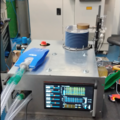
Amir Zadpoor and a team of scientists from the BioMechanical Engineering department are testing the first prototypes of a ventilator that consists entirely of standard parts. These parts are available locally almost all over the world and can be produced by hundreds of manufacturers. This means that, in many cases, the ventilator can be assembled locally. It is hoped that the design will be able to respond to the demand for ventilators and offer a solution to the logistical problems resulting from a shortage of specific components.
09 April 2020
Reappointment of Tim van der Hagen as Rector Magnificus/President of the Executive Board

The Supervisory Board of TU Delft has reappointed Professor Tim van der Hagen as TU Delft Rector Magnificus/President of the Executive Board. The reappointment is for a period of four years and becomes effective on 1 May.
08 April 2020
A bit of math to constrain epidemics

06 April 2020
TU Delft joins International Universities Climate Alliance

An International Universities Climate Alliance (‘Climate Alliance’) has been established this week. Over 40 universities from around the world committed to collaborating for climate insight and action.
03 April 2020
OperationAIR student team creates working prototype for emergency ventilator
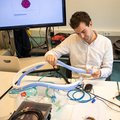
02 April 2020
FIOD and TU Delft join forces in investigating digital and financial crime

TU Delft researchers and students are helping the FIOD (Fiscal Information and Investigation Service) in its efforts to combat digital and financial crime. After a successful pilot, a longer-term research programme is now set to start.
02 April 2020
The strength of collagen
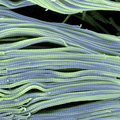
Collagen is the glue that holds our bodies together. It can be found in our skin, bones, muscles, cartilage, ligaments, hair, nails - in short, in almost every tissue in our body. In some places, for example in the skin, collagen proteins form networks that are very elastic. But why these networks are so elastic has so far been unclear. Researchers from Delft University of Technology, AMOLF and Wageningen University & Research have now discovered that the number of 'intersections' plays an important role. Between three and four connections per intersection is ideal. In fact, more connections makes the collagen networks less elastic. The new insights can be used, among other things, to repair damaged or aged tissue, such as cartilage or skin, and to grow new skin tissue for burn victims.
31 March 2020
TU Delft corona related research

We've brought together some of the research being done at TU Delft bearing a relation to the coronacrisis.
31 March 2020
ERC Advanced grants for TU Delft researchers
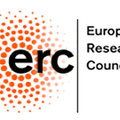
Three TU Delft researchers have been awarded an ERC Advanced Grant. Cees Dekker, Jerry Westerweel and Lieven Vandersypen will receive this European grant, which is awarded to five-year projects conducted by internationally established research leaders.
27 March 2020
3D printed component makes snorkel mask useful for medics
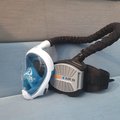
IDE researchers, in collaboration with physicians and industry, designed a unique 3D printed connector to connect an ordinary snorkel mask to a filter system. This makes the snorkel mask usable as a protective mask for medical personnel. The design has been made available worldwide on Thingyverse.
